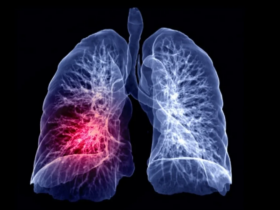United States: The number of heart diseases due to the most serious form of heart attack has drastically reduced, according to a recent study.
Promising Decline in STEMI Heart Attacks
STEMI (ST‐segment‐elevation myocardial infarction) heart attacks in the United States, documented by the researcher, have, in the past 15 years, decreased by nearly 50%, as reported by HealthDay.
STEMI heart attack is usually caused by a very tight blockage of a coronary artery, explained researchers in the background paper.
Lack of proper flow of blood can lead to cardiac tissue damage in the lowermost pumping chambers and ventricles. Focus on too much damage and it will not allow the heart to pump the required amount of blood, and it will lead to death.
Insights from the Study
“Seeing a decline in STEMI overall was surprising,” lead researcher Dr. Fares Ghanem, a cardiovascular disease physician at Southern Illinois University, said in a news release.
Those are the study data and his team used national hospital data from 2004 to 2020 for more than 3.4 million heart attack patients.
On the contrary, the rates of STEMI heart attacks in hospitals present a decrease from 49 per 100,000 hospitalizations in 2020 to nearly 99 per 100,000 in 2004, according to the results of current research.
Death rates dropped to 22% and 10.5% in people over 85 and those between 65 and 84 respectively, says the results. Deaths fluctuated moderately, for individuals aged 45 to 65 years, from 4% to 5.5%.
Nevertheless, the results of the study have presented some information about wage inequality.
The high-income STEMI rate was 42 per 100,000 last year, less than the low-income STEMI rate of 54 per 100,000 population.
The poor population has a double the risk of dying from a STEMI heart attack than in better-off groups, according to the researchers.
“The disparities revealed in the current survey mainly pepper the issue of inequality,” Swaah said.
The researchers presented their research to attendees of this meeting, organized by the Society for Cardiovascular Angiography & Interventions and held in Long Beach, California, on Thursday.
A research study at the meeting also illustrated differences in medicine used for heart attacks.
Ladies are 18% less likely to receive life-saving emergency care to quickly detect and then unblock coronary arteries than men, found researchers in an investigation of 2.1 million heart attack patients.
A similar finding emerged for Black and Hispanic patients, who had reduced chances to receive the same urgent care unit intervention by 25% and 17%, respectively.
Urgent Need for Health Equity
“As healthcare professionals, we are trained to care for all our patients equally regardless of race or gender,” said lead researcher Dr. Mandvi Devendra Pandey, a resident physician at Texas Health Resources.
“It is crucial to address these disparities not only to enhance individual patient outcomes but also to advance health equity and social justice,” Pandey continued in a news release. “Our study can serve as a positive catalyst by raising awareness, advocating for targeted quality improvements, and healthcare system reforms so everyone can have better cardiovascular care.”






